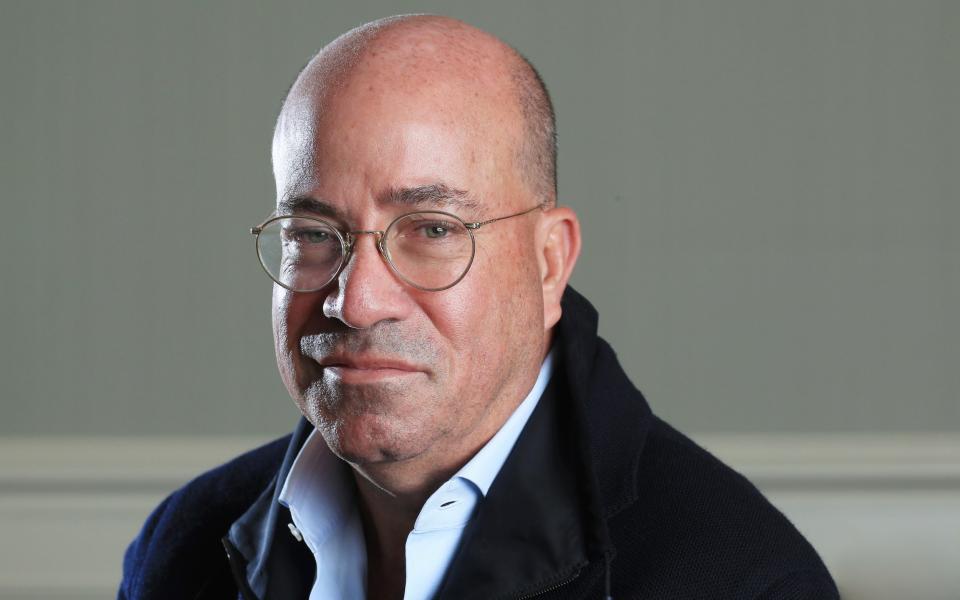‘I would never tolerate any issues for women’ says Telegraph bidder Jeff Zucker

The leader of the Abu Dhabi-backed takeover of The Telegraph has said he would “never tolerate any issues for women” amid concerns about the involvement of the Gulf state.
Both The Telegraph and The Spectator are currently subject to a bid by RedBird IMI – a fund backed by Sheikh Mansour bin Zayed al-Nahyan, the vice-president of the United Arab Emirates.
Fears about the editorial independence of both titles have prompted Lucy Frazer, the Culture Secretary, to order a public interest investigation, which is ongoing.
Senior commentators including Camilla Tominey, The Telegraph’s associate editor, and Janet Daley, a Sunday Telegraph columnist since 1996, have warned about discrimination against women in the UAE and the need for press freedom.

These concerns have been echoed by Judith Woods and Zoe Strimpel, both of whom are also columnists for The Telegraph and Sunday Telegraph.
Jeff Zucker, the former head of CNN who is leading the takeover, sought to downplay concern among staff in an interview with The Sunday Times.
“I understand why they are anxious and nervous, and I respect it. But in time it will be proven to be misplaced,” he said.
Asked about whether he feared resignations from journalists if the RedBird IMI takeover was to succeed, he replied: “I certainly hope not. I certainly think that that would be short-sighted.”
When pressed about the concerns of female Telegraph employees, Mr Zucker added: “Well, all I would say is that I will be running this asset. I will be responsible for it. And frankly, I would never tolerate any issues for women. I never have.”
He previously told the Telegraph that he would resign if it were suggested Abu Dhabi had attempted to interfere in editorial matters, as he sought to provide reassurance over the proposed deal.
“I understand why people have raised questions,” he said in November. “All I can say is, they’re misplaced. I am here to say that the editorial independence of The Telegraph is guaranteed.”
Last week, it emerged that Mr Zucker had rejected a plan to reduce the share of Abi Dhabi cash behind the proposed takeover despite press freedom concerns.
Mr Zucker’s involvement in RedBird IMI comes after he resigned as the president of CNN for failing to disclose a consensual relationship with a senior colleague.
“I was required to disclose it when it began but I didn’t. I was wrong. As a result, I am resigning today,” he told colleagues in February 2022 after a nine-year stint at the network.
He addressed his resignation in The Sunday Times: “I made a mistake. I don’t think that the punishment fit the crime.”

Campaigning organisations have highlighted various problems faced by women in the United Arab Emirates, with Human Rights Watch among those noting a number of areas where they “continue to face discrimination”.
In a column at the start of this month, Ms Tominey wrote: “As a Telegraph journalist, I share all these fears [about editorial independence]. But as a woman, I am even more deeply concerned about the potential for this newspaper to be owned by a sexist regime.
“For, while women in the UAE have made huge progress and enjoy more freedoms than others in the Middle East, they are still discriminated against in the judicial system, as reports by international observers have found.”
The following day, Ms Daley said: “The only point worth considering here is that in a free society no government – including the country’s elected one – should own a news media outlet.”
Sharing Ms Daley’s column, Allison Pearson, who is also one of The Telegraph’s best-known columnists, has insisted the takeover “must not be allowed to happen”.
Sir Richard Dearlove, a former head of MI6, told The Telegraph that the takeover represented a “profound security concern” and should be blocked by ministers.
Martin Townsend, a former editor of the Sunday Express and OK! Magazine, told The Camilla Tominey Show on GB News: “This should be a much, much bigger story. This is a huge story for Britain at the moment.
“If we allow a newspaper to be owned by the UAE or any other overseas territory with that kind of record on freedom of speech, then we are totally lost.
“Owners will always try to influence the paper, I mean this has been going on for decades. This is always what happens. The idea that they’re not going to try to influence the paper is for the birds. And we cannot allow that to happen with a regime like that.”

 Yahoo Finance
Yahoo Finance 